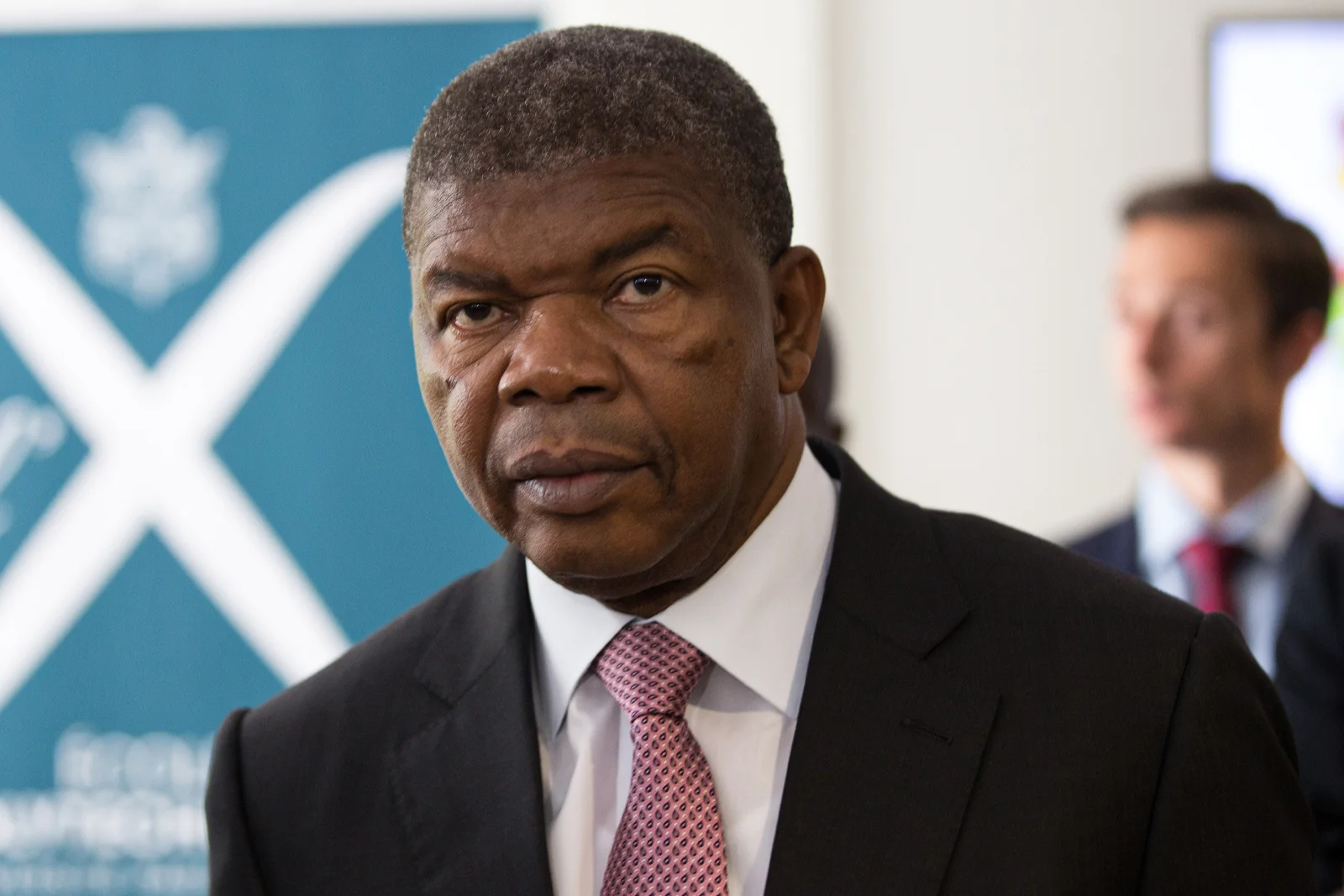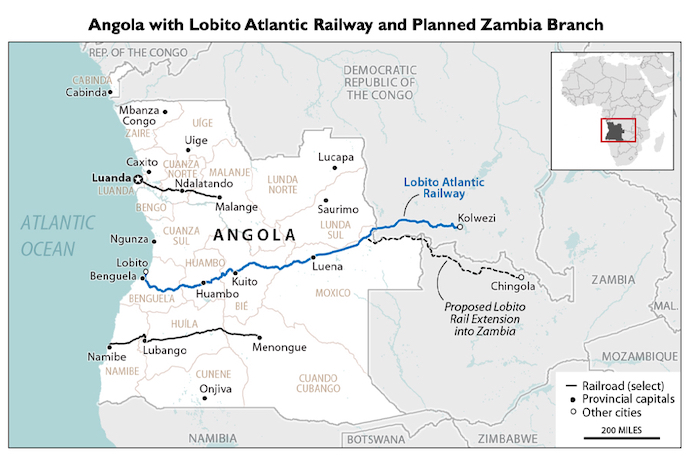
Does Biden’s Upcoming Visit to Angola Still Matter?
With global attention focused on President-elect Donald Trump’s return to the White House, President Joe Biden is quietly preparing for a historic visit to Angola this December. This journey highlights Angola’s increasingly pivotal role in global geopolitics, positioning it as a key player on the strategic chessboard of American, Chinese, and Russian interests. Its vast natural resources, critical location along the southwestern Atlantic coast, and potential for robust economic and military collaboration have elevated Angola’s significance in ways the world cannot ignore.
Angola’s historical connection with Moscow dates to its civil war when Soviet support laid the foundation for a lasting relationship. After the Soviet Union collapsed, China quickly entered the void, wielding oil-backed loans and expansive infrastructure projects as tools of influence. For Beijing, Angola is more than a trade partner; it is a crucial pillar of the Belt and Road Initiative, offering long-term economic and political dividends.
Recent diplomatic exchanges underscore Angola’s enduring ties to both Moscow and Beijing. In January, Chinese Foreign Minister Qin Gang visited Luanda, followed by a high-profile meeting between Chinese President Xi Jinping and Angolan President João Lourenço in March. Just this month, Angola’s Minister of External Relations, Tete António, met Russian Foreign Minister Sergei Lavrov during the Russia-Africa Partnership Forum in Sochi. Yet, Angola’s evolving relationship with the United States matches the flurry of activity with these two nations.

Secretary of State Antony Blinken described U.S.-Angola relations as reaching “new heights” during his visit to Luanda earlier this year. Subsequent meetings between Blinken and Lourenço in New York City this past September on the sidelines of a United Nations gathering—have reinforced these sentiments. Defense Secretary Lloyd Austin has also been a central figure in advancing U.S.-Angola ties, hosting Angola’s Minister of National Defense, João Ernesto dos Santos, at the Pentagon this May.
Austin’s earlier 2023 trip to Luanda marked the first-ever visit by a U.S. defense chief to Angola. Biden’s forthcoming visit is equally significant. It will be the first by an American president to visit Africa since Barack Obama’s 2015 tour of Kenya and Ethiopia. It reflects the enduring recognition of Angola as a strategic partner, a status Obama first articulated in 2009.
Economically, Angola is both an opportunity and a challenge for competing global powers. China maintains its position as Angola’s top trading partner, accounting for over 42% of the nation’s exports, compared to the United States’ modest $1.2 billion imports. Oil dominates Angola’s trade with both countries, but Beijing’s influence extends further. China’s investments in electromechanical products, steel, and infrastructure dwarf America’s economic footprint.
However, Angola’s relationship with China has shown signs of strain. Its $17 billion debt to Beijing—constituting 40% of the nation’s external liabilities—has drawn public criticism. President Xi Jinping has responded by proposing a shift from the “oil-for-loans” model to investments in agriculture, mining, and manufacturing.
The United States, meanwhile, has positioned itself as an alternative partner. Through initiatives like the Partnership for Global Infrastructure and Investment, announced at the G7 Summit in 2022, the U.S. has begun investing in projects like the Lobito Corridor railway, connecting Angola to the Democratic Republic of Congo. This railway exemplifies Washington’s efforts to counterbalance China’s Belt and Road Initiative.
The United States and Angola share a long-standing history in the oil industry. In September, Chevron marked 70 years of operations in Angola—a milestone in their partnership. Building on this legacy, Chevron announced in November 2024 plans to expand its exploration acreage in both Angola and Nigeria, signaling its ambition to revive production in the region.
 Angola’s geopolitical importance is magnified by its geographic location, which offers critical maritime routes for global trade and naval operations. This leverage has made Angola a focal point for defense strategies among major powers. Recent reports of China’s intention to establish a military training base in Gabon, north of Angola, have alarmed U.S. officials, as did discussions between Xi and Lourenço regarding a potential Angolan Air Force base.
Angola’s geopolitical importance is magnified by its geographic location, which offers critical maritime routes for global trade and naval operations. This leverage has made Angola a focal point for defense strategies among major powers. Recent reports of China’s intention to establish a military training base in Gabon, north of Angola, have alarmed U.S. officials, as did discussions between Xi and Lourenço regarding a potential Angolan Air Force base.
Despite its ties to China and Russia, Angola has shown an interest in diversifying its defense partnerships. For example, its purchase of French Airbus C295 maritime surveillance aircraft reflects a shift away from its traditional reliance on Russian and Chinese military technology.
Angola’s older political leaders may still recall Russia’s support for the then-Marxist People’s Movement for the Liberation of Angola (MPLA) during the country’s 27-year civil war against U.S.-backed insurgents. However, since President Lourenço assumed office in 2017, Angola has shown a clear pivot towards the West.
At the outset of Russia’s invasion of Ukraine, Angola has criticized Russia over the Ukraine war. “Angola is one of a few African countries to condemn Russia’s actions – apparently under pressure from the EU,” observed South African political risk analyst Marisa Lourenco, noting “a strong pivot towards the U.S. and away from Russia.”
While Angola still possesses advanced Russian jets and helicopters, it has been vocal about its desire to modernize and expand its capabilities with support from Western partners. Lourenço has invited the United States to contribute to Angola’s military modernization, and the U.S. has responded by providing over $18 million in military assistance from 2020 to 2023. This aid has focused on training, maritime security, and capacity-building efforts.
The budding defense relationship between Angola and the United States has been strengthened through joint military training programs and high-profile engagements. The first U.S.-Angola joint defense cooperation committee convened in June, building on earlier milestones such as the April 2023 Military Intelligence Conference in Luanda. Angola’s participation in the Artemis Accords, aimed at space collaboration, underscores its growing alignment with global security frameworks.
As Angola navigates its relationships with major global powers, its strategic calculations grow increasingly nuanced. The specter of a Trump administration, with its hawkish foreign policy team led by figures like Marco Rubio and Mike Waltz and Trump’s previous comments about the continent, complicates matters. On the one hand, Trump’s transactional approach to diplomacy could open doors to agreements that benefit Angola, particularly in sectors like critical minerals and military procurement. On the other hand, perceived alignment with China or Russia could lead to diminished U.S. assistance, as Trump’s “America First” doctrine would likely prioritize U.S. advantage over multilateral cooperation.
Amid these complexities, Biden’s December visit is far more than a routine diplomatic engagement. It is a calculated move in the geopolitical chess match over Africa’s future. As Angola balances its historical ties to China and Russia with its aspirations for greater engagement with the West, Biden’s presence could help shape Angola’s trajectory at a critical juncture. While Trump’s return looms as a potential disruptor to U.S. strategy, the Biden administration’s efforts to cement a meaningful partnership with Angola reflect the enduring importance of this African nation in global affairs.
